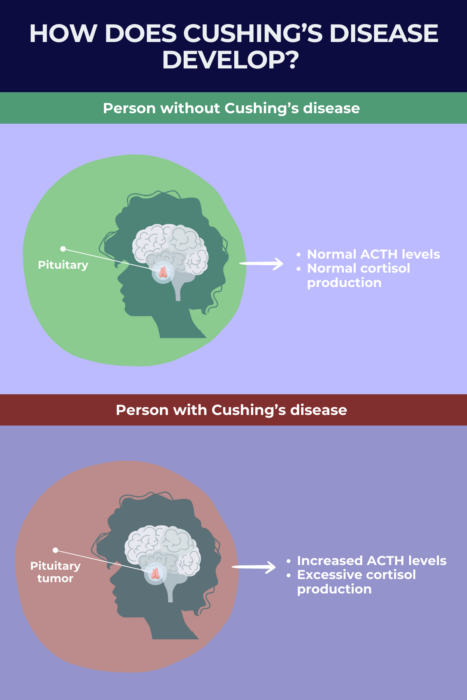FAQs about Cushing’s disease
Cushing’s syndrome is a broad term that refers to any health problem driven by excess levels of the hormone cortisol. Cushing’s disease is a specific form of the syndrome where high cortisol levels are the result of a tumor in the brain’s pituitary gland.
Cushing’s disease is caused by a tumor that forms in the pituitary gland, a small gland located in the base of the brain. The tumor causes the pituitary to secrete higher than normal levels of the signaling molecule adrenocorticotropic hormone (ACTH), which triggers excess cortisol to be produced in the adrenal glands. High levels of cortisol are the ultimate cause of Cushing’s symptoms.
While anyone can develop Cushing’s disease, the condition is more common in women than men and usually develops between the ages of 20 to 50.
Cushing’s disease is estimated to affect 10 to 15 out of every 1 million people worldwide. As many people can go undiagnosed, this number could be an underestimation, however.
Cushing’s disease can cause fatal complications if left untreated, but with appropriate care, life expectancy for someone with the disease is thought to be comparable to the general population. More studies are needed as there is some contradictory data regarding mortality rates in this patient population. Nonetheless, all evidence supports the fact that the prognosis for people with Cushing’s disease is typically better if the disease-driving tumor can be fully removed. Patients with persistent or active disease generally have an increased mortality risk.
Related Articles

 Fact-checked by
Fact-checked by 







